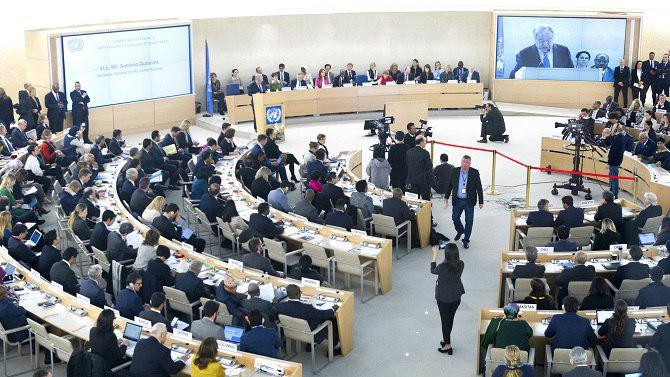
The Human Rights Council (HRC) has opened its 42nd session, September 9-27, 2019, in which it will discuss conditions and developments in global human rights. It marks the last session in which the Kingdom of Saudi Arabia will participate as a member state of the HRC, its fourth such membership, set to end in December of 2019. Saudi Arabia has already been a member of the HRC for two consecutive sessions, during which there has been a sharp increase in its human rights violations, thus compelling dozens of organizations to call on the UN General Assembly to suspend the country’s membership.
While it is not possible to re-elect Saudi Arabia at present because it has held two consecutive terms since 2014, the possibility of its re-election in future mandates would constitute a defect in the HRC should the country’s shameful human rights record not improve. The criteria for membership stress that “the General Assembly takes into account the candidate States’ contribution to the promotion and protection of human rights, as well as their voluntary pledges and commitments in this regard.”
In its previous session, the HRC discussed the murder of journalist Jamal Khashoggi and the UN report leveling charges against senior officials in the Saudi government. It is expected that attention will continue to be directed at Saudi Arabia’s ongoing violations, including unjust arrests, unfair trials, and increasing numbers of executions.
According to the report issued by UN special rapporteurs on the sidelines of the session, Saudi Arabia received three human rights complaints from March to the end of May 2019. The government responded to these complaints with misinformation and justification of violations, and there has been no improvement in the situation of the victims included in the complaints.
As the Saudi government tries to impose silence on civil society at home and continues to pursue activists abroad, the Saudi-European Organisation for Human Rights (ESOHR) is participating on the sidelines of an HRC symposium, along with other human rights organizations, to discuss Saudi Arabia’s use of enforced disappearances, arbitrary detention, and the death penalty, aimed at suppressing all legitimate voices and calls for reform. Also for discussion are Saudi Arabia’s impact on the effectiveness and work of the HRC and possible ways to maintain pressure on Saudi Arabia to stop abuses.
The ESOHR believes that the deteriorating human rights situation, which coincides with the HRC’s final session with Saudi Arabia as a member state, confirms Saudi Arabia’s failure to abide by its role and obligations. The ESOHR emphasizes that the best way to bring justice to victims and end abuses is to find a mechanism to hold accountable both direct and indirect perpetrators.
